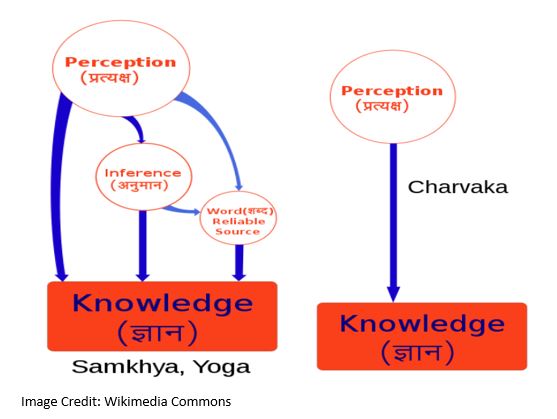Who are Astika and Nastika?
Indian philosophy is divided into two main schools of thought. One is Astika, which affirms the authority of the Vedas, while the other is Nastika, which does not. The term Astika means “one who believes in the existence of God or gods,” while Nastika means “one who does not believe in the existence of God or gods.” This article will explore the differences between these two schools of thought and provide a comparative study of their philosophies.
Astika and Nastika: Understanding the Differences
Astika and Nastika are two schools of philosophical thought that originated in ancient India. Astika is a school of traditional Hindu philosophy that believes in the existence of God or gods and upholds the authority of the Vedas. Nastika, on the other hand, is a school of Indian philosophy that denies the existence of God or gods and does not accept the authority of the Vedas.
The Vedas are a collection of ancient Hindu scriptures that contain hymns, rituals, and philosophical discussions. They are considered the most sacred texts in Hinduism and are believed to have been revealed by the gods to the ancient sages. Astika schools of thought, such as Samkhya, Yoga, Vaisheshika, Mimamsa, and Vedanta, all accept the authority of the Vedas and use them as a basis for their philosophical discussions.
Nastika schools of thought, such as Buddhism, Jainism, and Charvaka, reject the authority of the Vedas and do not believe in the existence of God or gods. They rely on reason, logic, and empirical evidence to support their philosophical arguments. They do not accept the Vedas as a reliable source of knowledge and reject the idea of a supreme being or creator.
The Comparative Study of Astika and Nastika Philosophies
Astika and Nastika philosophies have distinct differences in their views on the nature of reality, the purpose of life, and the concept of liberation.
Astika schools of thought believe in the existence of an eternal, unchanging, and ultimate reality called Brahman. They also believe in the existence of individual souls, which are distinct from Brahman but ultimately merge with it. The purpose of life, according to Astika philosophy, is to realize this ultimate reality and attain liberation from the cycle of birth and death. Liberation means the merging of the individual soul with Brahman.
Nastika schools of thought, on the other hand, reject the concept of an eternal and unchanging reality. They do not believe in the existence of a supreme being or creator, but they do acknowledge the existence of individual souls. The purpose of life, according to Nastika philosophy, is to attain liberation from the cycle of birth and death by eliminating ignorance and desire. Liberation means the attainment of Nirvana or Moksha, which is a state of complete freedom from suffering and rebirth.
Astika schools of thought emphasize the importance of devotion, rituals, and meditation as a means of attaining liberation. They believe that the path to liberation is through the practice of yoga, self-discipline, and the study of the Vedas. Nastika schools of thought, on the other hand, emphasize the importance of reason, logic, and empirical evidence. They believe that the path to liberation is through the practice of ethical conduct, meditation, and the cultivation of wisdom.
In conclusion, Astika and Nastika philosophies have distinct differences in their views on the nature of reality, the purpose of life, and the path to liberation. Astika schools of thought affirm the authority of the Vedas and believe in the existence of God or gods. They emphasize the importance of devotion, rituals, and meditation as a means of attaining liberation. Nastika schools of thought reject the authority of the Vedas and do not believe in the existence of God or gods. They emphasize the importance of reason, logic, and empirical evidence and believe that liberation can be attained through ethical conduct, meditation, and the cultivation of wisdom.

